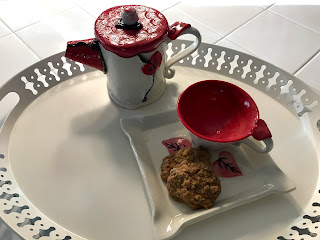A new book, “Rethinking Depression” by Eric Maisel

I was 16 when my parents moved across country a month before my junior prom. I cried and cried. My stomach got upset and my face broke out. I cried some more. The solution? The doctor prescribed phenobarbital, 3 times a day.
I didn’t feel sad or anxious or mad anymore. I didn’t feel anything. I went to school each day completely zoned out. The drugs dealt with my normal, yet unpleasant adolescent feelings at the time. Years later, I found out that drugs don’t take unpleasant feelings away, they take you away from yourself.
Now, most people would say that I was suffering from depression. That I needed an antidepressant. After what I went through with drugs as a teenager, I disagree. Taking a pill only makes you feel less. Your feelings feel good and bad, but that doesn’t mean there’s anything wrong with you or your feelings. Sadness is a feeling, not a disease.
Eric Maisel, PhD, a licensed psychotherapist and author would agree. His new book, “Rethinking Depression”, does two key things: 1) it disputes the prevailing view that depression is a disease and 2) it introduces a complete program for addressing human sadness.
According to Maisel, “There is something profoundly wrong with the way that we currently name and treat certain human phenomena. When we call something a “mental disease” or a “mental disorder” we imply a great deal about its origins, its treatment, its intractability, and its locus of control. The mental health industry has its reasons for calling life’s challenges “disorders” but we have few good reasons to collude with them. In fact, the word depression has virtually replaced unhappiness in our internal vocabularies. We feel sad but we call ourselves depressed. Having unconsciously made this linguistic switch, when we look for help we naturally turn to a “depression expert.” We look to a pill, a therapist, a social worker, or a pastoral counselor — even if we’re sad because we’re having trouble paying the bills, because our career is not taking off, or because our relationship is on the skids. That is, even if our sadness is rooted in our circumstances, social forces cause us to name that sadness “depression” and to look for “help with our depression.” People have been trained to call their sadness “depression” by the many forces acting upon them, from the mental health industry to mass culture to advertising.”
In reviewing the book, I came across alarming statistics about depression and drugs.
1 in 10 or 11% of people in the U.S. are taking anti-depressants
20 million Americans are diagnosed with depression each year.
120 million people worldwide are reputed to be suffering from depression.
From 1996 to 2005, the number of Americans taking antidepressants doubled
Antidepressants are the most prescribed drug in the USA.
Here’s what Eric Maisel says in “Rethinking Depression” about drugs and depression.
“Chemicals have effects and they can alter a human being’s experience of life. That a chemical called an antidepressant can change your mood in no way constitutes proof that you have a mental disorder called depression. All that it proves is that chemicals can have an effect on mood. There is a fundamental difference between taking a drug because it is the appropriate treatment for a medical illness and taking a drug because it can have an effect. This core distinction is regularly obscured in the world of treating depression.”
Eric explains the need to let feelings be feelings and not an illness.
“By taking the common human experience of unhappiness out of the shadows and acknowledging its existence, we begin to reduce its power. At first it is nothing but painful to say, “I am profoundly unhappy.” The words cut to the quick. They seem to come with a life sentence and allow no room for anything sweet or hopeful. But the gloom can lift”.
Eric’s solution is to live a life with meaning. Where there’s room for feelings and a life where you decide what is meaningful for you.
“Living authentically means organizing your life around your answers to three fundamental questions. The first is, “What matters to you?” The second is, “Are your thoughts aligned with what matters to you?” The third is, “Are your behaviors aligned with what matters to you?” You accept and embrace the fact that you are the final arbiter of your life’s meaning. With this approach to life, each day is a project requiring existential engineering skills as you bridge your way from one meaningful experience to the next.”
“If we can begin to move from the “depression is a mental disorder” model to the idea that human beings must deal more effectively with the realities of human existence, including the realities of sadness, despair, and grief, we will have taken a giant step away from “medicalizing everything” and toward lives lived with renewed passion, power and purpose.”
I wish I’d known all this when I was 16. I’d have been able to see that my sadness and anger were normal feelings and crying was a normal outlet especially for a teenager. Maybe, with support and understanding for my feelings instead of masking my feelings with drugs, I would have moved across the country and through my feelings to experience confidence from making new friends in a new high school.
Here’s some more information about Eric Maisel and “Rethinking Depression”
Eric Maisel, PhD, is a licensed psychotherapist and the author of Rethinking Depression and numerous other titles including Mastering Creative Anxiety, Brainstorm, Coaching the Artist Within, and A Writer’s San Francisco. He blogs for Psychology Today and the Huffington Post and writes for Professional Artist Magazine. Visit him online at http://www.ericmaisel.com.

Excerpts from Rethinking Depression ©2012 by Eric Maisel. Printed with permission of New World Library, Novato, CA. www.newworldlibrary.com










